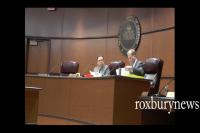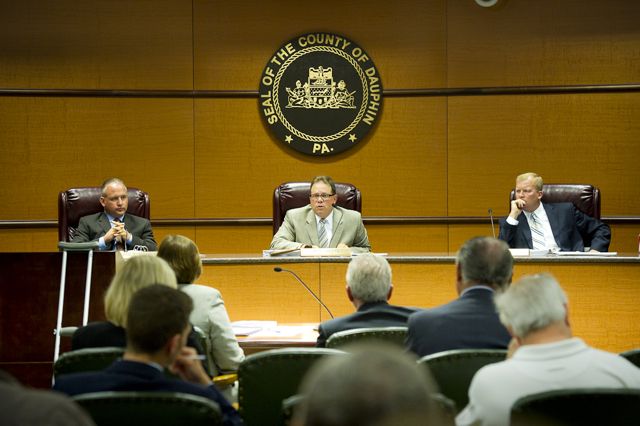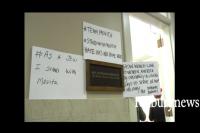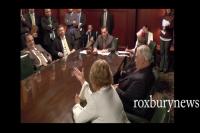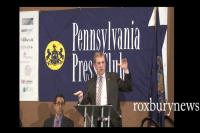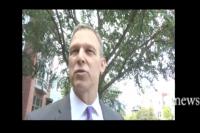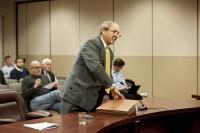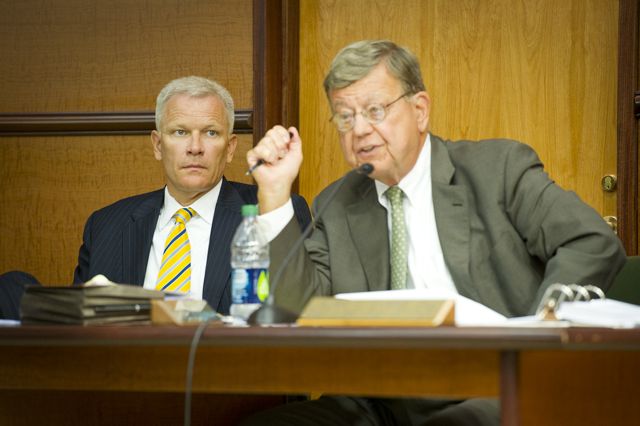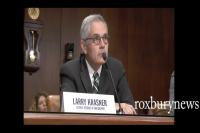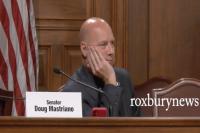As released by the U.S. Department of Justice.
Peter J. Smith.
United States Attorney.
Middle District of Pennsylvania.
The United States Attorney’s Office for the Middle District of Pennsylvania announced today that a former Rite Aid Corporation Vice President and a New Jersey businessman have been charged in connection with a $14.6 million dollar, surplus inventory sales/kickback scheme.
According to United States Attorney Peter Smith, Jay Findling, age 54, of Manalapan, New Jersey, is charged in a Criminal Information filed today in the United States District Court in Harrisburg with Conspiracy to commit Wire Fraud. Former Rite Aid Vice President Timothy P. Foster, age 65, of Portland Oregon, is charged in the same Criminal Information with making False Statements to Authorities.
The charges are based upon Foster’s and Findling’s alleged 9 year conspiracy to defraud Rite Aid, a publicly-owned national drug store chain with its headquarters located in Camp Hill, Pennsylvania, via a surplus inventory sales scheme that took place between 2001 and 2010. As the Vice President for Quality Assurance, Foster’s primary responsibilities at Rite Aid involved the liquidation of surplus Rite Aid inventory across the United States. During the time period in question, Foster worked for Rite Aid in Oregon. According to the Criminal Information, Findling’s and Foster’s scheme succeeded by making Rite Aid believe its surplus inventory had been sold to Findling’s company, J. Finn Industries, LLC, for amounts reported by Foster when, in fact, the inventory had been sold to third parties for greater amounts. Findling would then kick back a portion of his profits to Foster.
The scheme allegedly started in 2001 and continued until February of 2010 when Foster resigned from Rite Aid. According to the Criminal Information, Findling established a bank account in New Jersey under the name of “Rite Aid Salvage Liquidation.” The account was used by the two conspirators to collect the payments submitted by the real buyers of the surplus Rite Aid inventory. After the payments were received, Findling sent lesser amounts dictated by Foster to Rite Aid for the goods, thus inducing Rite Aid to believe the inventory had been purchased by J. Finn Industries, not the real buyers. According to the Criminal Information Findling received at least $87.4 million from the real buyers of the surplus Rite Aid inventory but, with Foster’s help, only had to tender $72.8 million of that amount to Rite Aid, leaving Findling approximately $14.6 million in profits from the scheme.
The Criminal Information also alleges that Foster knowingly and willfully lied when he was interviewed by FBI agents in January 2014 and denied he conspired with Findling to defraud Rite Aid. Foster Later recanted his false statements when he was re-interviewed by the FBI in May 2014. During that interview Foster not only admitted he conspired to defraud Rite Aid with Findling, he voluntarily surrendered $2,941,940 in cash kickbacks Findling had paid Foster over the life of the conspiracy.
The Criminal Information was filed pursuant to plea agreements with the two defendants. Both agreements, which are subject to approval by the court, require the defendants to cooperate with the government and to pay restitution to Rite Aid as ordered by the court. Findling’s plea agreement also obligates him to make a $11.6 million dollar, lump sum forfeiture payment to the government at the time he enters his guilty plea. No date has been scheduled as yet for the entry of Foster’s or Findling’s guilty plea.
The case was investigated by the Harrisburg Office of the FBI. Both defendants are being prosecuted by Assistant United States Attorney Kim Douglas Daniel.
Indictments and Criminal Informations are only allegations. All persons charged are presumed to be innocent unless and until found guilty in court.
A sentence following a finding of guilty is imposed by the Judge after consideration of the applicable federal sentencing statutes and the Federal Sentencing Guidelines.
Both the False Statement and the Conspiracy count are punishable by up to 5 years imprisonment and a $250,000 fine. Under the Federal Sentencing Guidelines, the Judge is also required to consider and weigh a number of factors, including the nature, circumstances and seriousness of the offense; the history and characteristics of the defendant; and the need to punish the defendant, protect the public and provide for the defendant’s educational, vocational and medical needs. For these reasons, the statutory maximum penalty for the offense is not an accurate indicator of the potential sentence for a specific defendant.
Photo/Natalie Cake file.


